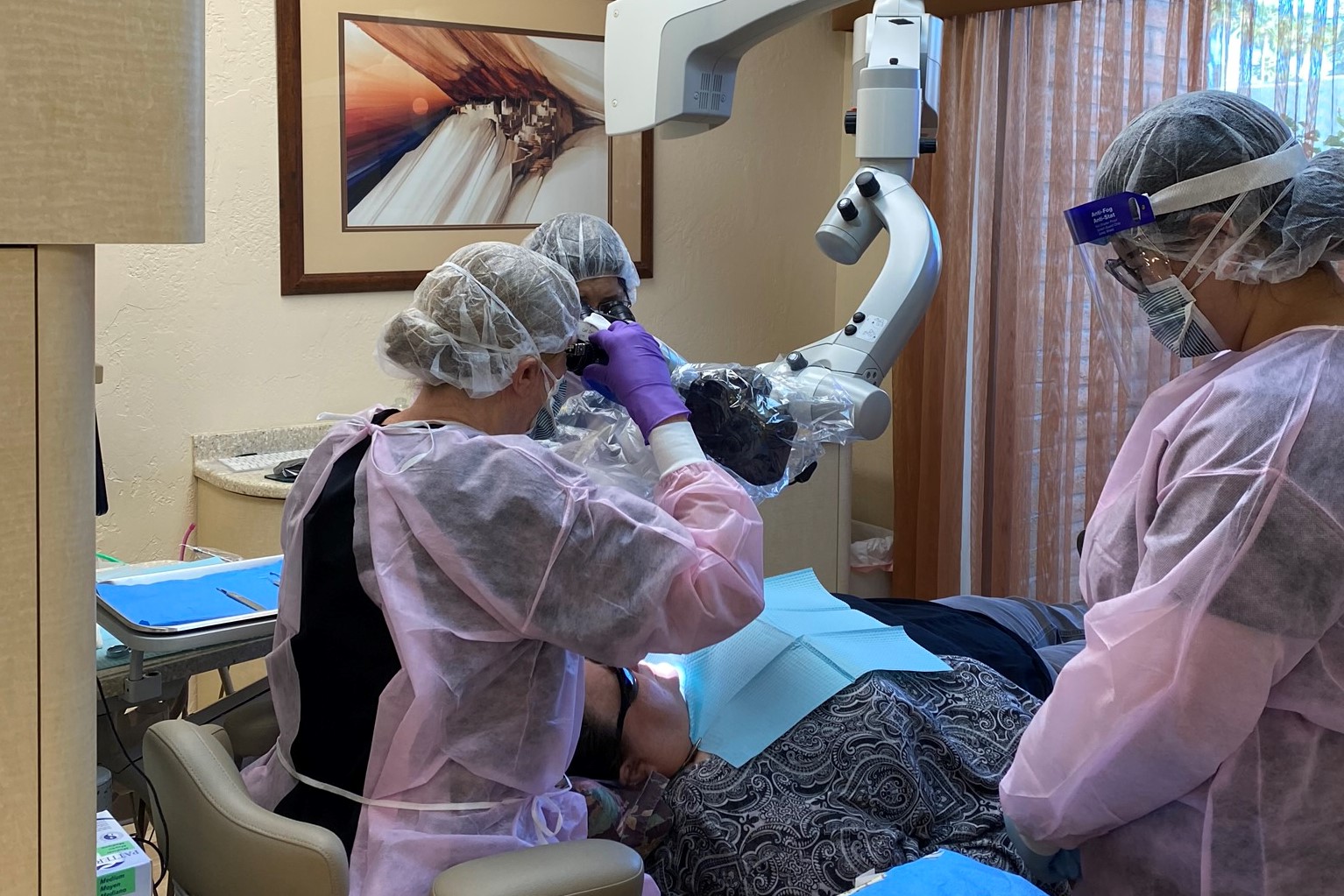Dental implants can change your life dramatically. If you were missing teeth before, you now will be able to chew, speak, and smile with a new sense of confidence. However, while dental implants can be successful up to 98 percent of the time, success depends on taking care of your implants. Dental implant care isn’t complicated, but it does help to know how best to protect your implants. Here’s a brief overview of practices to keep your dental implants working for a lifetime.
A Basic Guide To Dental Implant Care
- Start off right by following post-operative instructions. Regardless of whether you receive a single implanted tooth or an entire arch, it is important after the procedure to rest, take antibiotics if prescribed, avoid acidic or hard-to-chew foods for a few days, and use a soft-bristled toothbrush to gently clean your new implants.
- Brush your dental implant twice a day with low-abrasive toothpaste. If you already brush twice a day, great! It is important to use toothpaste that is NOT designed to “scour” your teeth, though, because it will damage the surface of the implant. Your implanted teeth can also become discolored by highly abrasive toothpastes.
- Floss your implanted teeth at least once a day – but use the right tools. It’s especially important to clean the spaces between your teeth if some or all of them are dental implants. The dental floss you use should not shred or leave particles behind when you’re done; this can contribute to the development of peri-implantitis. Soft picks and interdental brushes can be good choices, as can water flossing.
- Ask about using a mouth guard if you grind your teeth. A properly fitted mouthguard can protect against bruxism (nighttime teeth grinding). The guard can protect your dental implant from pressure that can cause damage to the implant itself or create spaces between your teeth that can trap food and other debris.
- Continue to visit your dentist on a regular basis. Just as when you had a full set of natural teeth, it is important to receive preventive care from your dentist. This is true no matter how many of your teeth are implants. At office visits, your provider can ensure your implants are functioning properly, check the health of your gums, and advise if any part of your dental implant needs replacement.
“Receiving a dental implant is just the beginning of a transformational process for patients who have been living with damaged or missing natural teeth,” says Dr. Jacqueline S. Allen, who practices with the Phoenix Endodontic Group. “You can keep the transformation moving forward by taking good care of your implants. Our practice can advise patients concerning all aspects of implant care.”

